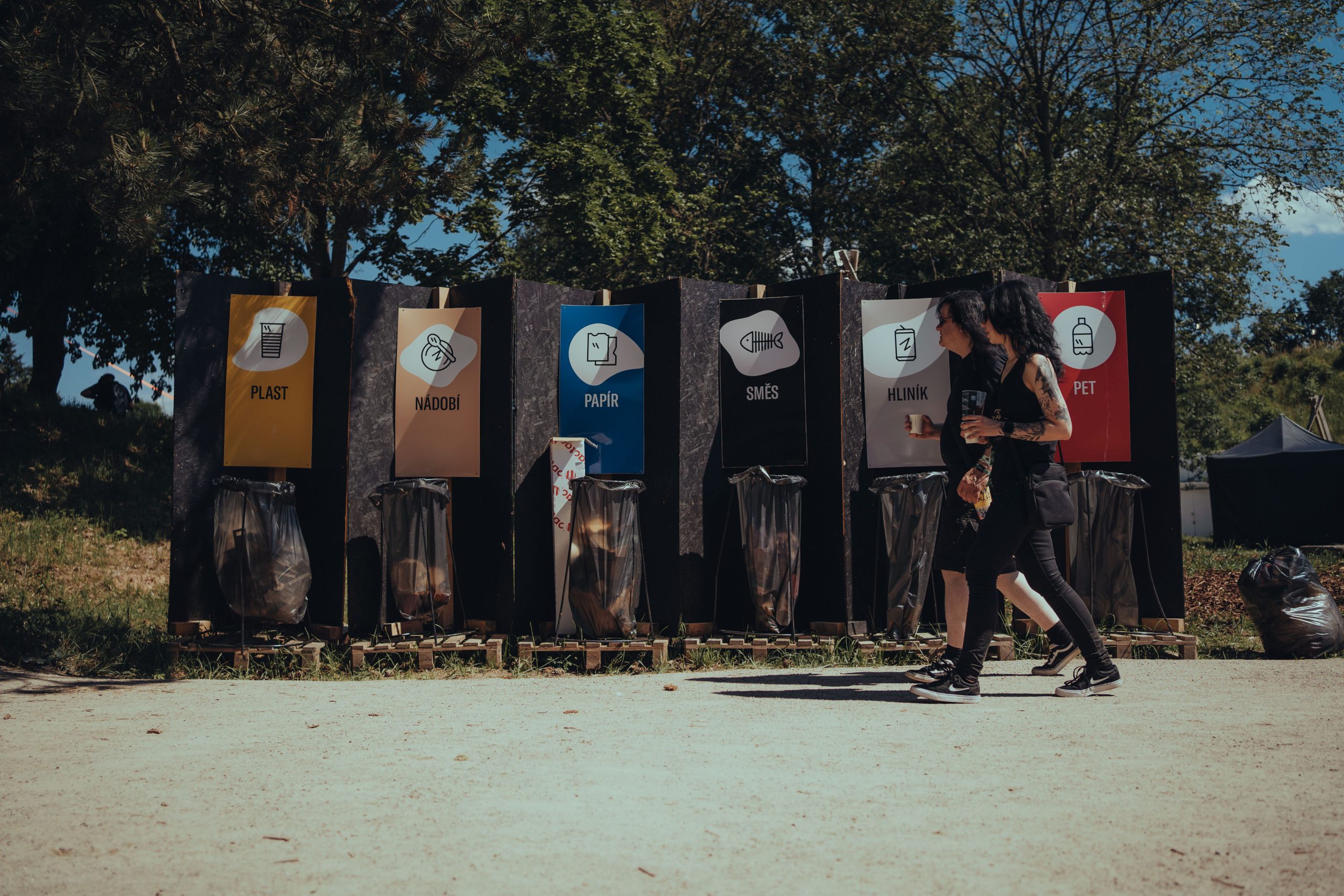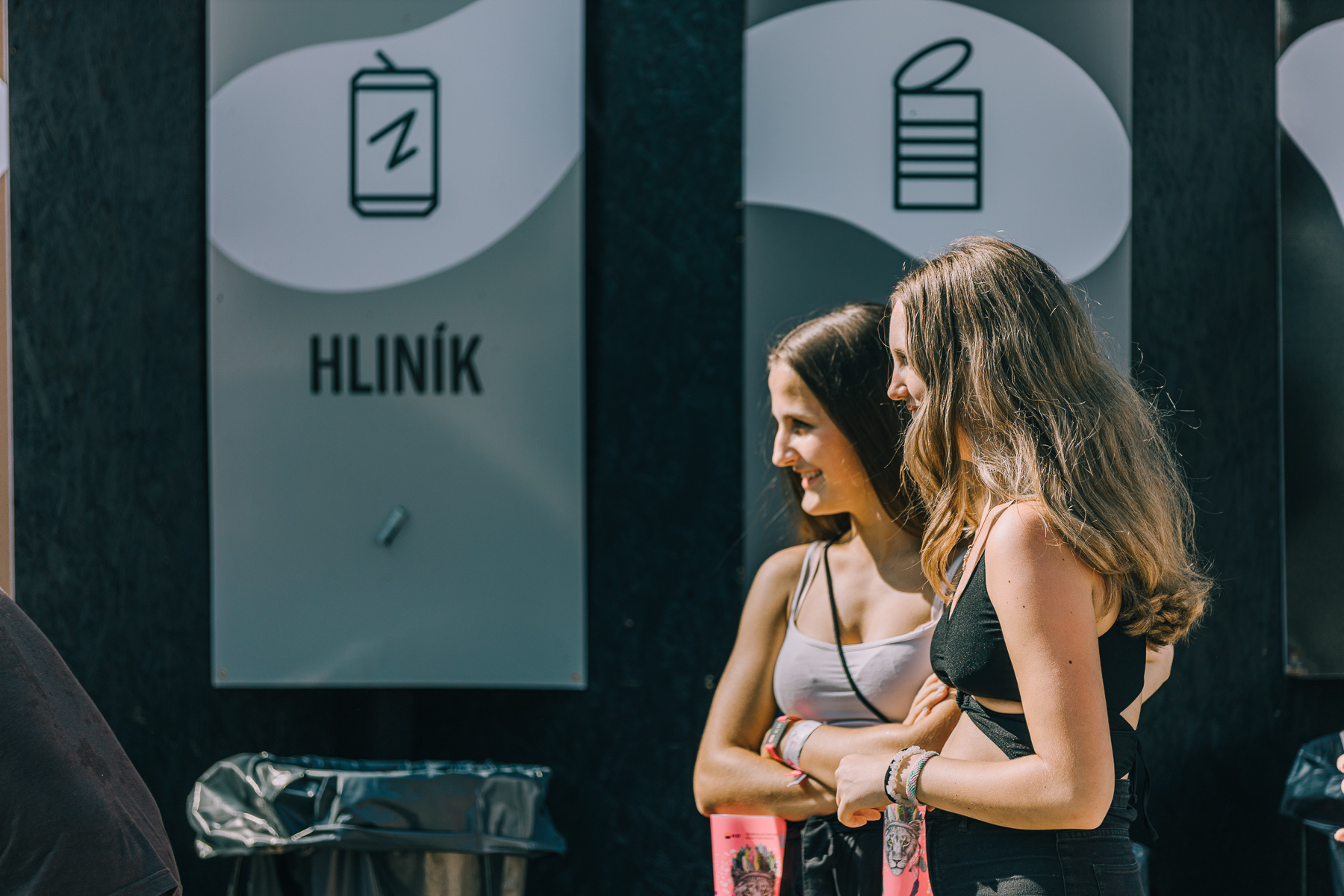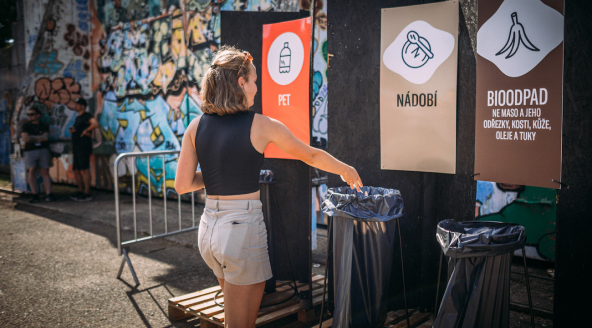Waste
The Czech Republic produced 39 million tonnes of waste in 2022, which is an average of 3 643 kg per capita (source Czech Statistical Office). And this is certainly not an insignificant volume! We believe that the best waste is no waste. That is why we have developed our own hierarchy of waste management methods.
We prevent waste, for example by applying the principles of the circular economy. Some materials do not become waste because we find them new uses. Such as barrels, pallets or shipping containers. For more information on the use of second-hand resources, see the Materials section. We have our own reusable cups that we offer to event organisers so they then don’t have to resort to disposable solutions.
In cooperation with Hradecké služby (thank you!) we have focused on sorting a wider range of waste. We currently distinguish seventeen types. At events in the area you will most often encounter plastic (or separately PET bottles as at Rock for People festival), metals and cans, paper, mixed waste and sometimes even biodegradable waste. Other waste is consistently separated in the backstage. We also separate glass, beverage cartons, metals, paper cartons and boxes, or wood. We also focus on textiles, hazardous waste and electrical waste.
But it doesn’t end with container collection. We follow the path of waste to its final recovery. Do you want to know what happens next?
Plastic -> handed over to Hradecké služby -> sorting according to types -> then production of recycled products or building materials. Such plastics include for example candy wrappers, potato chips bags, PET bottle caps. Unfortunately, some of the plastics cannot be recycled and end up as solid alternative fuel in cement plants, or in the worst case without further use in landfills. That is why we want to further reduce our plastic footprint in the future.
PET bottles -> separate them from the rest of the plastics -> hand them over to Hradecké služby -> recycled PET is produced (e.g. fleece, fibres for sleeping bags, new bottles).
Metals/tins are handed over to Hradecké služby -> a new tin can is created at the recycling operator.
Paper -> we hand it over to Hradecké služby, where it is cleaned, pressed -> then processed in paper mills.
Bio-waste and compostable tableware -> we separate them -> we hand them over to the composting plant, which is also located on the premises of Hradec Králové Airport -> it produces very high quality compost -> we use it for planting of greenery on the premises. Note: only plant residues (not meat, eggs, dairy products) belong to the bio-waste. Bio-waste management is a great example of circularity of material in practice.
Gastro-waste -> we send it to the biogas plant in Rybitví near Pardubice -> here it is used to produce heat and electricity. Gastro waste is collected from refreshment vendors.
Glass -> we hand it over to Hradecké služby for processing -> the recycling processor produces impurities in the new glass.


